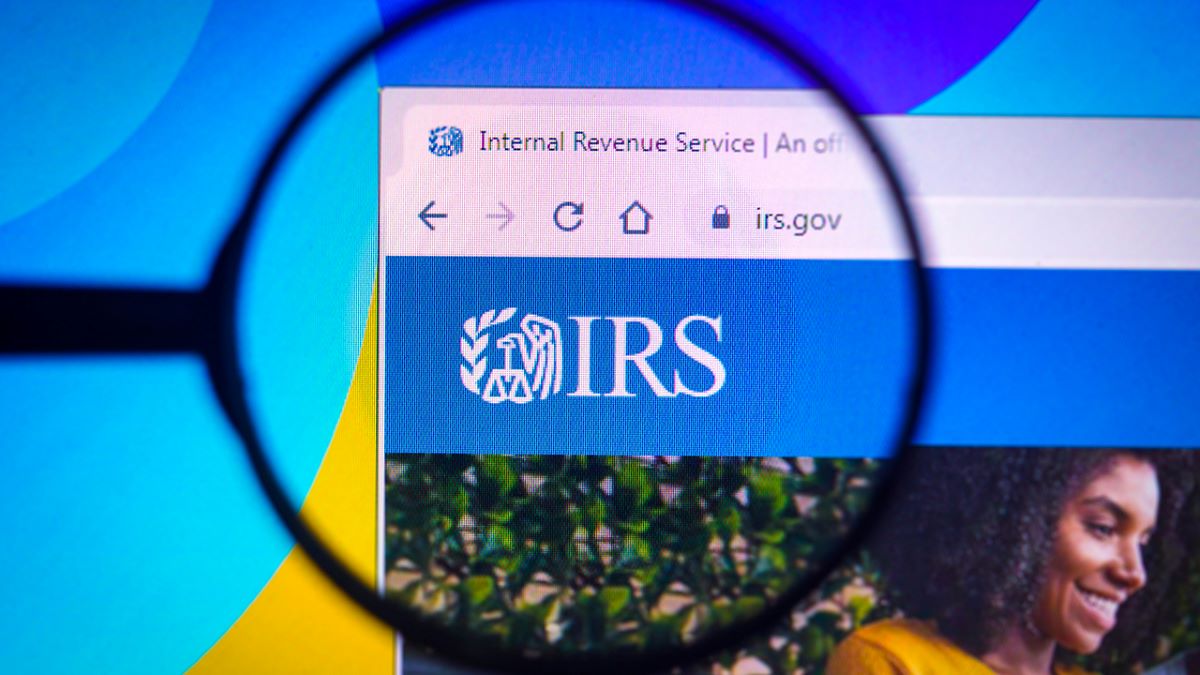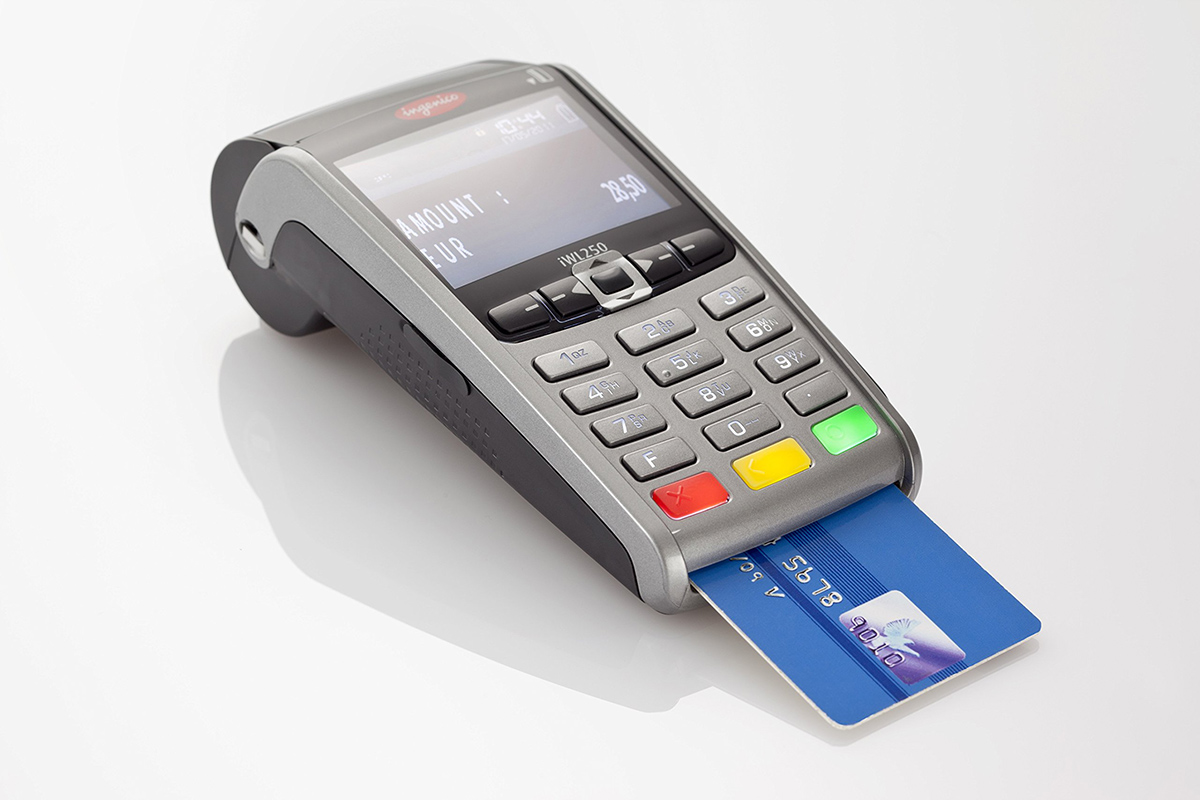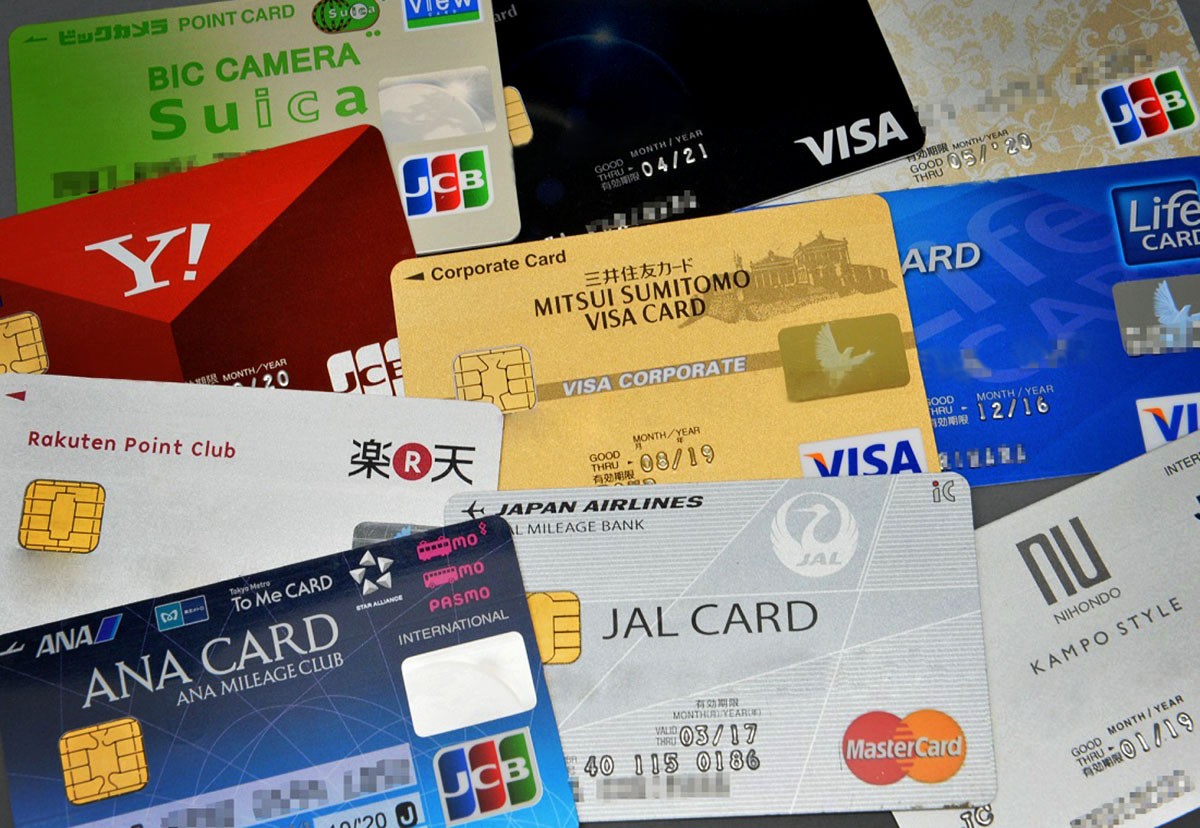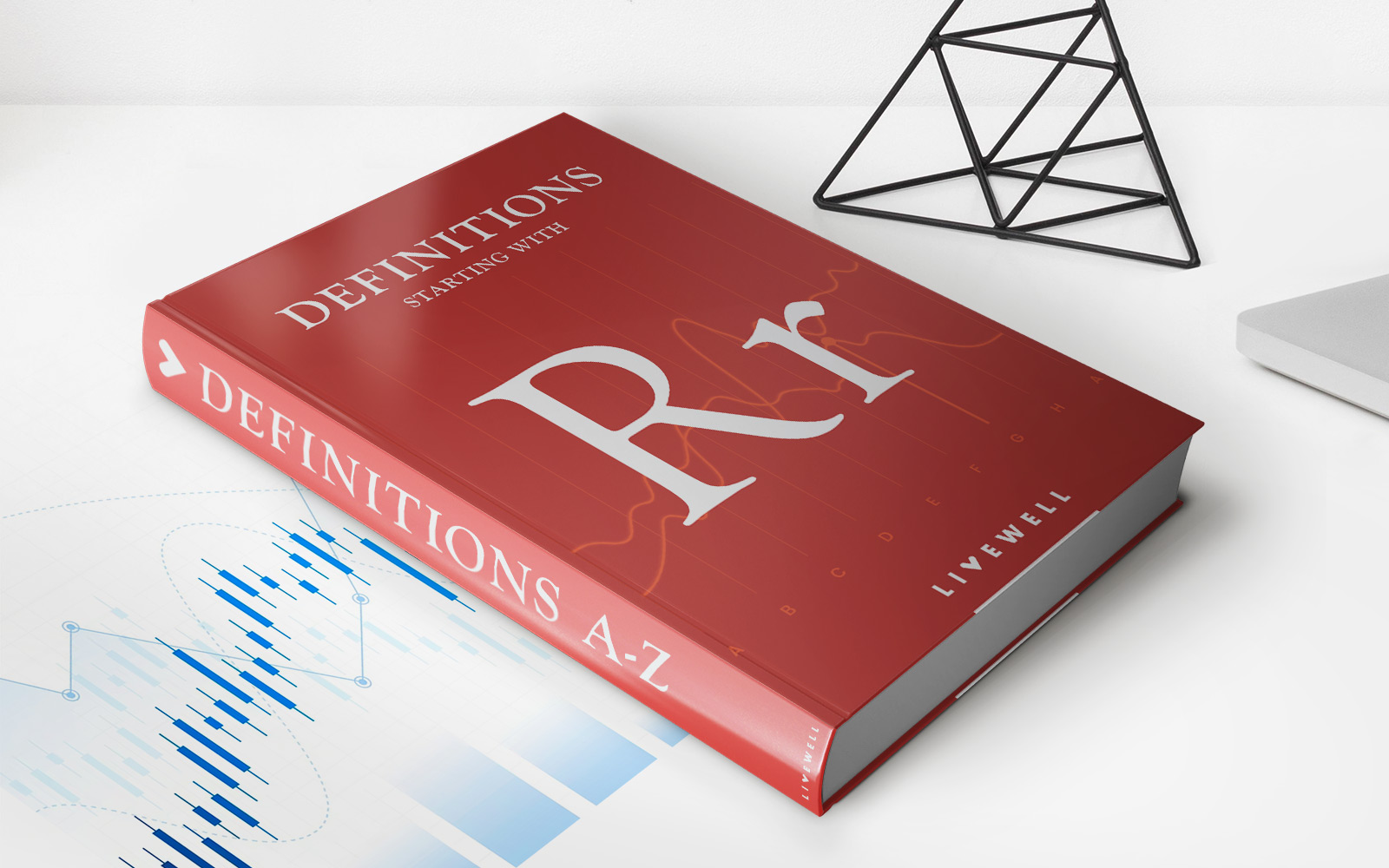

Finance
How To Get A Credit Card With No Job
Published: November 6, 2023
Learn how to get a credit card with no job and manage your finances effectively. Find out the best practices and tips to secure a credit card without employment.
(Many of the links in this article redirect to a specific reviewed product. Your purchase of these products through affiliate links helps to generate commission for LiveWell, at no extra cost. Learn more)
Table of Contents
Introduction
Having a credit card can be a valuable financial tool, providing convenience, security, and the ability to build credit. However, one common requirement for obtaining a credit card is having a steady source of income. For individuals who are currently unemployed or have no traditional job, this can pose a challenge.
Fortunately, there are options available for those seeking to get a credit card with no job. By understanding the requirements, exploring alternative income sources, and considering different credit card options, it is possible to navigate this situation and obtain a credit card.
In this article, we will discuss various strategies and approaches to obtaining a credit card when you don’t have a job. Whether you are a student, a retired individual, or simply in-between jobs, there are solutions that can work for your situation.
It is important to note that while these strategies can be helpful, it is essential to use credit responsibly and to manage your finances wisely. Having a credit card should never be seen as a means to live beyond your means or accumulate debt that you cannot afford to repay.
Now, let’s dive into the specifics of getting a credit card with no job and explore the options available to you.
Understanding the Requirements
Before diving into the various methods of obtaining a credit card with no job, it is important to understand the requirements that credit card issuers typically look for. While a steady source of income is often a requirement, it is not the only factor considered. Here are some key aspects to consider:
- Credit History: Your credit history plays a significant role in the credit card application process. Lenders want to assess your creditworthiness and ability to handle credit responsibly. If you have a good credit history, it can increase your chances of getting approved for a credit card.
- Payment Capacity: Even without a traditional job, lenders still want to ensure that you have the financial capacity to make payments on the credit card. This can include any alternative income sources or assets you may have.
- Age and Legal Status: In most countries, you need to be at least 18 years old to apply for a credit card. Additionally, you usually need to be a legal resident or citizen to qualify.
- Identification and Documentation: When applying for a credit card, you will typically need to provide identification documents such as a government-issued ID, proof of address, and any other documentation required by the credit card issuer.
By understanding these requirements, you can better navigate the process of obtaining a credit card with no job. In the following sections, we will explore different strategies and options that can help you meet these requirements and increase your chances of getting approved.
Building Your Credit History
Having a solid credit history is essential when it comes to applying for a credit card, especially if you don’t have a job. Your credit history demonstrates your ability to handle credit responsibly and makes you a more attractive candidate to lenders. Here are some strategies to help you build your credit history:
- Secured Credit Cards: Consider applying for a secured credit card. These cards require a cash deposit as collateral, which serves as your credit limit. By using a secured credit card responsibly and making consistent on-time payments, you can establish a positive credit history.
- Credit Builder Loans: Another option is to apply for a credit builder loan. With these loans, the funds are held in a separate account while you make monthly payments. Once the loan is paid off, the funds are released to you, and you have a positive credit history to show for it.
- Authorized User: If you have a trusted family member or friend who has a credit card with good payment history, ask them to add you as an authorized user. Their positive credit behavior will be reflected on your credit report, helping you build credit.
- Alternative Credit Reporting: Some credit bureaus consider non-traditional forms of credit history, such as rent payments or utility bills. Look into alternative credit reporting companies that can include these payments in your credit profile.
It is important to note that building credit takes time, so be patient and consistent with your efforts. Make sure to make all your payments on time, keep your credit utilization low, and avoid taking on too much debt. This will help you establish a strong credit history that can increase your chances of being approved for a credit card in the future.
Exploring Alternative Income Sources
When it comes to getting a credit card without a job, having an alternative source of income can greatly improve your chances of approval. Here are some alternative income sources to consider:
- Freelancing or Self-Employment: If you’re working as a freelancer or have your own business, you can use your income from these sources to qualify for a credit card. Make sure to keep detailed records of your earnings and provide documentation to support your income claims.
- Investments and Rental Income: If you have investments, such as stocks, bonds, or rental properties, the income generated from these sources can be considered when applying for a credit card. Be prepared to provide documentation and statements to verify your income.
- Retirement Income: If you’re a retiree, your retirement income, such as social security benefits, a pension, or an annuity, can be used as a source of income to qualify for a credit card. Make sure to have the necessary documentation to support your retirement income claims.
- Spouse or Family Member’s Income: If you don’t have a job but have a spouse or family member with a steady income, you may be able to include their income on the credit card application. Some credit card issuers consider household income when evaluating applications.
When exploring alternative income sources, it’s important to be honest and accurate about your situation. Providing false information can lead to repercussions and damage your creditworthiness. Make sure to keep proper documentation and be prepared to provide proof of income when applying for a credit card.
Additionally, consider that even with alternative income sources, the credit card issuer will still evaluate your ability to manage credit responsibly and make payments. Ensure that your income is sufficient to cover your expenses and credit card bills before pursuing this option.
Applying for a Secured Credit Card
One of the most accessible options for obtaining a credit card with no job is applying for a secured credit card. Secured credit cards are designed for individuals who may not qualify for traditional credit cards due to limited credit history or insufficient income. Here’s how they work:
A secured credit card requires a cash deposit as collateral, usually equal to the credit limit of the card. This deposit serves as security for the issuer in case you fail to make payments. The deposit is refundable when you close the account or upgrade to an unsecured credit card.
Applying for a secured credit card is relatively straightforward. Here are the steps to consider:
- Research and Compare: Research different secured credit card options available in the market and compare their features, fees, and interest rates. Look for cards with low fees and a reputable issuer.
- Submit an Application: Complete the application form, providing accurate personal information and any required documentation, such as proof of identification and address.
- Deposit Requirement: Pay the required deposit to the credit card issuer. The deposit can usually be made online or via mail with a check or money order.
- Activation: Once approved, you’ll receive your secured credit card. Activate the card according to the instructions provided.
- Use Responsibly: Treat your secured credit card like any other credit card. Make regular purchases and pay off the balance in full each month to build a positive credit history.
Over time, with responsible credit card usage and timely payments, you can improve your credit score and eventually qualify for an unsecured credit card. Some secured credit card issuers even offer the option to “graduate” to an unsecured card after a certain period of responsible use.
Remember, using a secured credit card responsibly is crucial for building credit. Avoid maxing out the credit limit, make all payments on time, and keep your credit utilization low. These habits will help you establish a positive credit history and improve your chances of qualifying for other credit products in the future.
Seeking a Cosigner
If you’re unable to qualify for a credit card on your own due to a lack of income or credit history, another option to consider is seeking a cosigner. A cosigner is someone who agrees to take joint responsibility for the credit card debt if you are unable to make the payments. Having a cosigner can increase your chances of getting approved for a credit card. Here’s how it works:
A cosigner is typically a trusted individual who has a stable income, good credit history, and is willing to vouch for your creditworthiness. When you apply for a credit card, both you and the cosigner will be equally responsible for repaying the debt. This arrangement can provide the credit card issuer with additional assurance that the debt will be repaid.
When seeking a cosigner, consider the following:
- Choose a Trusted Individual: Look for someone who has a good credit history, a stable source of income, and a strong relationship with you. This person should fully understand the responsibilities of being a cosigner.
- Discuss Expectations and Responsibilities: Have a candid conversation with the potential cosigner regarding their responsibilities and your commitment to repay the debt. It’s crucial to establish open communication and trust.
- Apply for a Credit Card: Submit the credit card application with the cosigner’s information included. The credit card issuer will consider both yours and the cosigner’s financial information when reviewing the application.
- Use the Credit Card Responsibly: Once approved, make sure to use the credit card responsibly. Make timely payments, keep the balance low, and avoid overspending. By demonstrating responsible credit card usage, you can both build your credit history.
It’s important to note that being a cosigner comes with risks for both parties involved. If you are unable to make the payments, it can negatively impact the cosigner’s credit score and financial situation. Therefore, it’s crucial to have open and honest communication, as well as a solid plan for managing the credit card responsibly.
This option is especially useful for individuals with limited credit history, such as students or young adults who may not have established credit on their own. With a cosigner, you have the opportunity to build a positive credit history and eventually qualify for credit cards on your own.
Considering Prepaid or Debit Cards
If you don’t have a job or are unable to qualify for a traditional credit card, another option to consider is using a prepaid or debit card. While these cards may not offer the same benefits and credit-building opportunities as a credit card, they can still serve as a useful financial tool. Here’s what you need to know:
Prepaid Cards:
Prepaid cards are loaded with funds in advance and can be used for purchases wherever the card’s network, such as Visa or Mastercard, is accepted. Here are some key points to consider:
- No Credit Check: Prepaid cards typically do not require a credit check, making them easily accessible to individuals with no credit history or no job.
- Control and Budgeting: Since prepaid cards can only be used up to the amount loaded onto them, they offer excellent control over spending and can help you stick to a budget.
- No Debt Accumulation: With a prepaid card, you can only spend the available balance. This eliminates the risk of falling into debt and accumulating interest charges.
- No Credit Building: Keep in mind that prepaid cards do not directly contribute to building a credit history since they do not involve borrowing money or making credit payments.
Debit Cards:
Debit cards are linked to a bank account and allow you to spend funds directly from the account. Here’s what you should know about using debit cards:
- No Credit Check: Similar to prepaid cards, debit cards usually do not require a credit check, making them accessible to individuals without a job.
- Convenience and Acceptance: Debit cards are widely accepted by merchants and can be used for in-person purchases, online transactions, and cash withdrawals from ATMs.
- Spending Limited to Available Funds: With a debit card, you can only spend the funds available in your bank account, helping you stay within your means.
- No Credit Building: Like prepaid cards, debit card usage does not contribute directly to building a credit history since there is no extension of credit involved.
While prepaid and debit cards may not offer the same benefits as credit cards, they can still provide a convenient and secure way to make purchases and manage your finances. They are especially useful for individuals who prefer to avoid credit or need an alternative payment method.
Researching Credit Card Options for Students
If you’re a student without a job or limited credit history, there are credit card options specifically designed for students. These cards often have more lenient requirements and provide opportunities to build credit while offering student-centric benefits. Here’s what you need to know when researching credit card options for students:
1. Student-Focused Features:
Many credit card issuers offer student credit cards with features tailored to the unique needs of students, such as:
- No or Low Annual Fee: Look for student credit cards that have little to no annual fees, helping you to keep costs down while building credit.
- Rewards and Cash Back: Some student credit cards offer rewards or cash back programs, allowing you to earn points or cash back on your purchases. Look for cards that align with your spending habits and offer rewards that you can maximize.
- Flexible Payment Options: Certain student credit cards provide flexible payment options, allowing you to set up customized payment schedules that align with your financial situation.
2. Credit-Building Opportunities:
Student credit cards can serve as a valuable tool for building credit history while still in school. Look for features that can help you establish and improve your credit, such as:
- Reporting to Credit Bureaus: Ensure that the card issuer reports your credit activity to major credit bureaus. Timely payments and responsible credit usage will contribute positively to your credit history.
- Graduation to Unsecured Credit Cards: Some student credit card issuers offer the opportunity to “graduate” to an unsecured credit card once you demonstrate responsible credit card usage. This can help you transition to a card with more benefits and rewards in the future.
3. Wise Credit Management:
It’s important to approach credit card usage responsibly, especially as a student. Here are some tips for wise credit management:
- Start with a Low Credit Limit: Consider applying for a credit card with a low credit limit to help you manage your spending and avoid accumulating excessive debt.
- Pay Your Balance in Full: Whenever possible, make it a habit to pay off your credit card balance in full each month. This helps you avoid interest charges and build a positive payment history.
- Monitor Your Spending: Keep track of your spending to ensure that you stay within your budget and avoid overspending.
Take the time to research and compare different student credit card options to find the one that best fits your needs. Be mindful of the terms and conditions, fees, and credit-building opportunities provided by each card issuer.
Remember, using a credit card as a student is an opportunity to learn about responsible credit management and build a solid credit foundation for your future financial endeavors.
Exploring Credit Card Options for Retired Individuals
Retired individuals may face unique challenges when it comes to obtaining a credit card without a traditional job. However, there are credit card options available that cater to the needs of retired individuals. Here’s what you should consider:
1. Income Requirements:
While retired individuals may not have a traditional job, they often have alternative sources of income, such as pensions, investments, or social security benefits. Some credit card issuers take these forms of income into consideration when evaluating an application. Be prepared to provide documentation to support your income claims.
2. Secured Credit Cards:
If you have a limited credit history or are concerned about qualifying for an unsecured credit card, a secured credit card can be a viable option. With a secured card, you will need to provide a cash deposit as collateral, which determines your credit limit. Secured credit cards can help you build or rebuild your credit history by making timely payments.
3. Prepaid or Debit Cards:
If you prefer not to borrow money but still want the convenience of card-based transactions, prepaid or debit cards can be viable options. Prepaid cards allow you to load funds onto the card in advance, while debit cards are linked to your bank account. These options do not require a credit check and can be used for online purchases and in-person transactions.
4. Credit Cards for Travel and Rewards:
If you enjoy traveling or want to earn rewards, there are credit card options specifically designed for these purposes. Look for credit cards that offer travel perks, such as travel insurance, airport lounge access, or hotel discounts. Rewards credit cards can also provide benefits like cash back, airline miles, or points that can be redeemed for merchandise or gift cards.
5. Credit Card Benefits:
When exploring credit card options, consider the additional benefits and features offered. Look for cards with no or low annual fees, a grace period for interest-free purchases, and fraud protection. Some credit cards may also offer extended warranty protection, purchase protection, or price matching guarantees.
Before applying for a credit card, compare different options from various issuers, considering the terms, rewards, fees, and benefits. Read the fine print to understand any applicable charges, interest rates, and repayment terms.
Remember, using a credit card wisely is important at any stage of life. It’s essential to make payments on time, avoid accumulating excessive debt, and keep track of your expenses. By managing your credit responsibly, you can maintain financial stability and enjoy the benefits of a credit card as a retired individual.
Conclusion
Obtaining a credit card without a job may seem challenging, but with the right strategies and understanding of the available options, it is possible to navigate this situation successfully. Whether you are a student, retired individual, or simply do not have a traditional job, there are credit card options tailored to your specific circumstances.
Building a solid credit history and demonstrating responsible credit card usage are key factors in obtaining a credit card without a job. Consider options such as secured credit cards, prepaid or debit cards, or seeking a cosigner. Research student credit card options if you are still in school and explore credit card options geared towards retired individuals if you have already retired.
Regardless of the option you choose, it’s important to use credit responsibly. Make timely payments, manage your expenses wisely, and avoid accumulating excessive debt. This will help you build a positive credit history and improve your chances of obtaining other credit products in the future.
Remember to explore different credit card offers, compare their features, fees, and benefits. Read the terms and conditions to ensure that you fully understand the card’s requirements and limitations.
Finally, credit cards can be valuable financial tools when used responsibly. They offer convenience, security, and the ability to build credit for a variety of individuals, regardless of their employment status. By making informed decisions and managing credit wisely, you can make the most of your credit card and enhance your overall financial well-being.














